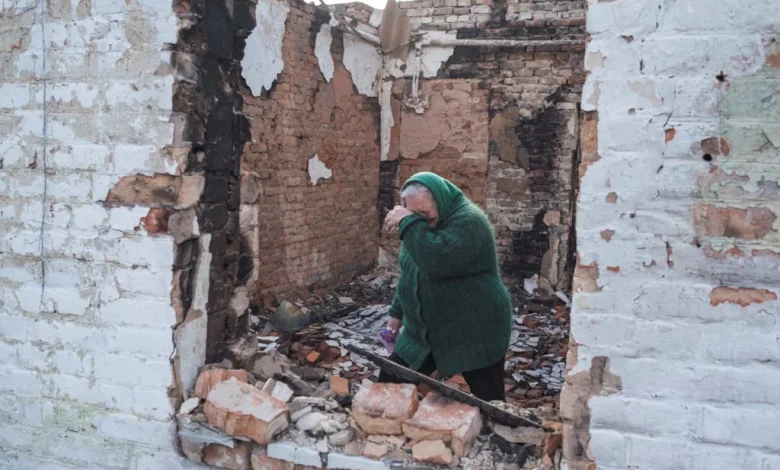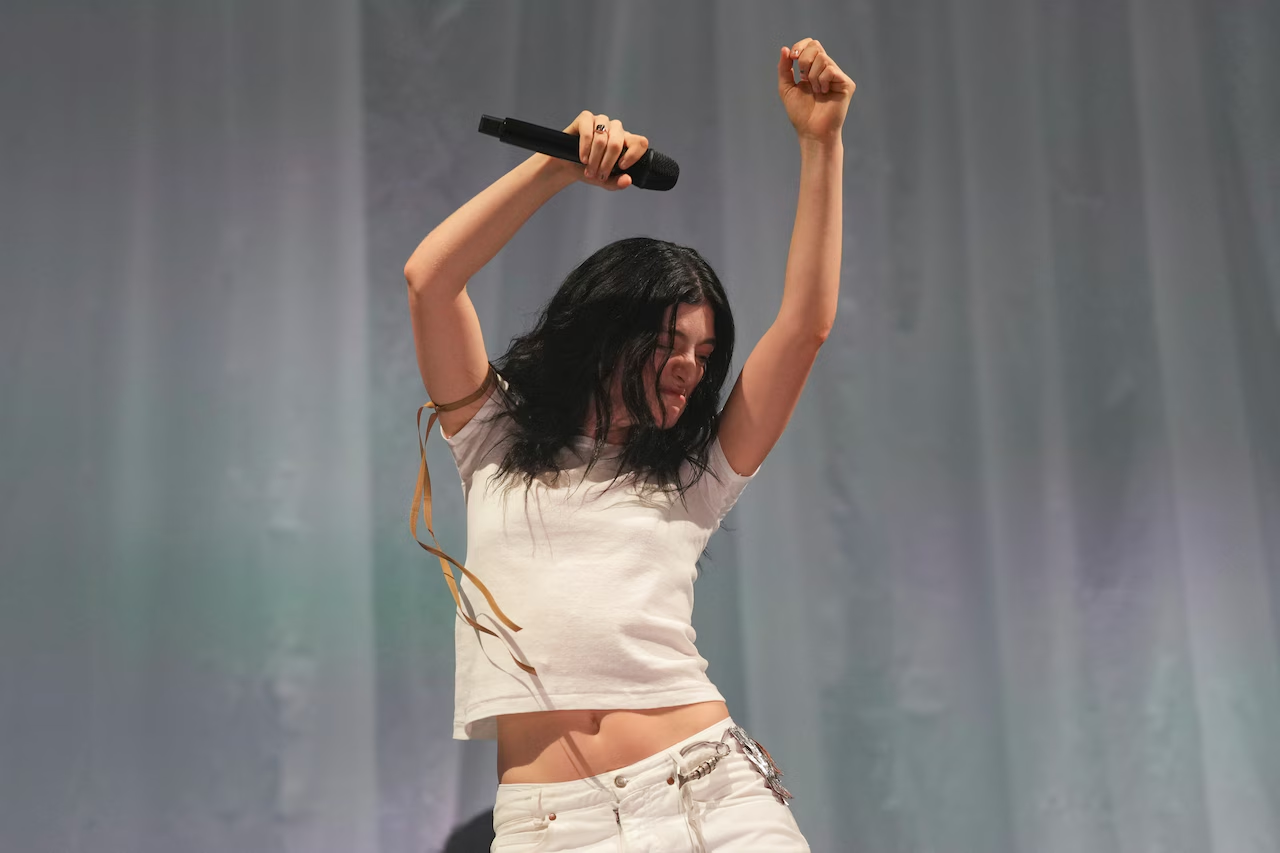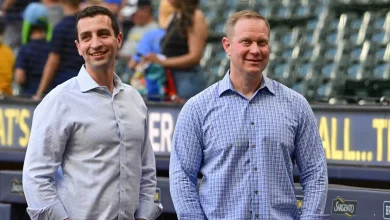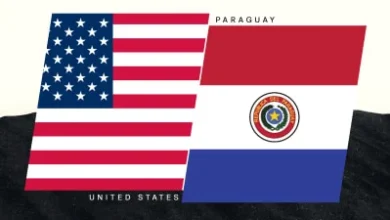‘2000 Meters to Andriivka’ follows Ukrainians forced into combat in Russia’s invasion

Amna Nawaz:
The full-scale Russian invasion of Ukraine is just a few months short of the four-year mark, four years of brutality and carnage fought almost literally inch by inch from World War I-style trenches in the east.
Tonight, PBS’ “Frontline” working with the Associated Press will air “2000 Meters to Andriivka,” a relentless portrait of life and death on the front lines.
Nick Schifrin spoke with its filmmaker.
Nick Schifrin:
In the spring of 2023, with U.S. support, Ukraine launched a much-anticipated counteroffensive. It was designed for Ukraine to break through massive Russian defensive lines to try and seize back some of the 20 percent of the country occupied by Russia. The fighting was often brutal, and it largely failed to achieve Ukraine’s own goals, as well as American hopes that Russia could be beaten back.
One of the most intense battles during that counteroffensive took place in the Eastern province of Donetsk, including the village of Andriivka. That battle is the subject of the new film, “2000 Meters to Andriivka.”
The director is Mstyslav Chernov, who won an Oscar and a Pulitzer for his previous film, “20 Days in Mariupol.”
Thanks very much. Welcome to “News Hour.”
The film is unflinching. Almost all of it takes place in a tree line or a forest with two minefields on either side. That’s the only route into Andriivka. It is a hellscape of World War I-style bleakness, trees stripped bare, explosions everywhere, men dying, only small trenches for protection.
How brutal was that fight?
Mstyslav Chernov, Director, “2000 Meters to Andriivka”: Oh, it was brutal, and not only for Andriivka.
I think Andriivka is an example of that fight. And you just mentioned that this was believed as a counteroffensive. It largely failed at that point. But it’s not the right way to say about it. The right way to say about it is, amazingly, Ukrainians, having less forces, having less military potential, having less support, they still managed to fight back.
I think this film, for me, more and more becomes a film about fighting fear, about real courage that manifests itself in taking on the task that is considered by most of the countries and most of the people as impossible and still doing it.
Nick Schifrin:
Why was Andriivka so important to fight for this little village?
Mstyslav Chernov:
In Donbass, there was the city of Bakhmut. And it was occupied in spring of 2023. So one of the objectives of the counteroffensive was to liberate that city.
And Andriivka is right on outskirts of Bakhmut. So taking Andriivka would allow to cut the supplying chain, supplying weapons to occupied Bakhmut and potentially liberate it. The counteroffensive itself did not reach that goal, but Andriivka was liberated.
Nick Schifrin:
A lot of this film is told through helmet cameras. Why did you choose to do that? And what does it bring to the storytelling?
Mstyslav Chernov:
For us, it was the medium which would help to bring the audience into the experience of these men, of these civilians, who became soldiers, who were forced to become soldiers by the invasion.
And at its core, this film is also a statement on how the war is terrible and how horrifying, disgusting and unacceptable it is. And that vision through the camera, through the eyes of the soldiers, through the camera that is on the helmet of a soldier is the best way to communicate that.
Nick Schifrin:
The most intimate moments of the film come between the fighting, when you do have a minute to talk to the soldiers. And one of them, Fedya (ph), the officer who you headed into Andriivka with, said he never wanted to be a soldier.
Fedya, Ukrainian Soldier (through interpreter):
I never saw myself as a soldier and never wanted to be a soldier. So I came to fight, not serve. They are two different things.
Nick Schifrin:
“I came to fight, not serve.” Why is that so important for this film and for that larger point that you’re making about everyone’s motivations?
Mstyslav Chernov:
I mean, this entire film is taking place in that small, tiny forest that is only one-mile-long and as we see the fight unfolding over more than three months.
And Fedya is like a representation of every soldier I meet. Every soldier I meet in that forest is a volunteer. Every soldier in that forest has made a decision to go and defend their home because, for them, it’s a home invasion. And he had never seen himself as a soldier.
So it is not a story of soldiers. It’s actually the story of civilians who are just taking on this responsibility to fight for their home.
Nick Schifrin:
The sacrifice, of course, wasn’t only for soldiers. It was also for their hometowns, all of society in Ukraine. And at one point, you leave the fighting and go to the funeral of a soldier who died fighting in Andriivka.
And the soldier’s mother tells you, quote:
Woman (through interpreter):
That’s how it is. Our heroes are all killed. Heroes don’t die. My God, they will kill all our boys soon, and then who will be left?
Nick Schifrin:
What’s been the effect on these soldiers’ hometowns?
Mstyslav Chernov:
That tragedy is palpable and visible in those communities. It’s devastating.
But, at the same time, I see how much resolve and how much strength is — that fight is giving to the communities, because, because of these men, because they have made a decision to go and fight, well, these communities still exist.
Nick Schifrin:
And, finally, in the time we have left, one of the main moments of this film seems to me this line: “These fields, these forests.”
Man (through interpreter):
These fields, these forests, everything will grow back. Everything blooms again, grows, and same with all these cities we are fighting for. Over time, they will be rebuilt.
Nick Schifrin:
“And we can begin from scratch.”
How does that reflect what Ukraine is fighting for?
Mstyslav Chernov:
That’s a dream of every Ukrainian who wakes up every morning or actually wakes up every night because of the bombing, and hopes that all the friends, all the families are alive. And, sometimes, that’s not what happens.
But this is war that also gave such strength to Ukrainian nation and to Ukrainian national idea and national identity. And every forest does grow back. Every village will be rebuilt. That’s for sure. But, for that, there needs to be peace.
And I don’t know any human in the world that wants more peace than every Ukrainian.
Amna Nawaz:
And “Frontline”‘s “2000 Meters to Andriivka” premieres tonight right here on PBS at 10:00/9:00 Central.





